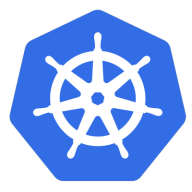

Kubernetes and Amazon EKS compete in the cloud container management category. Kubernetes offers broader flexibility in deployment environments, while Amazon EKS provides tighter AWS integration, giving each an edge depending on the user's needs.
Features: Kubernetes excels in scalability and flexibility across various environments, offering strong automation and container management with self-healing capabilities. It supports major cloud providers, enhancing its adaptability. Amazon EKS integrates seamlessly with AWS services, offering an efficient managed platform for deploying and scaling containerized applications. It features robust auto-scaling and orchestration but emphasizes AWS service integration.
Room for Improvement: Kubernetes users report challenges with its interface and significant learning curve, alongside integration issues with some tools. They seek improved dashboards, network policies, and built-in monitoring tools. Amazon EKS is criticized for high costs and a less intuitive management interface, with common requests for better node management and enhanced out-of-the-box monitoring and logging.
Ease of Deployment and Customer Service: Kubernetes supports flexible deployment across hybrid, private, and public clouds with extensive community support, albeit limited direct customer assistance. Amazon EKS primarily operates in the public cloud with strong AWS integration. EKS users benefit from AWS support but often request better user interfaces and more responsive customer service.
Pricing and ROI: Kubernetes is open-source and generally free, primarily incurring costs through infrastructure and support services, offering cost-effectiveness at scale. Amazon EKS operates on a pay-as-you-go model, with costs based on resource usage. It may be more expensive for small setups but offers strong ROI for users within the AWS ecosystem, enhancing resource management reliability and efficiency.
Initially, not having them resulted in an unoptimized solution. However, with these tools in place, we witnessed a reduction of costs by approximately a third—if it was $100 beforehand, we brought costs down to $25.
Tasks that used to take hours are now completed in minutes, resulting in a 10 to 15% freeing up of resources' time for cross-skilling or further contributions.
Developer productivity and onboarding have also improved, leading to 60 to 70% faster onboarding and faster time to market.
What earlier required manual coordination and took thirty to forty minutes per release is now usually completed within ten to fifteen minutes.
We receive revenue and returns from its deployment due to improved services and applications.
I have seen a return on investment, and the metrics in return for the investment are very fast.
We didn't need to manage etcd and those control management tools; it's totally handled from the AWS side, making it very beneficial.
I believe there should be a recovery solution available for at least a few hours so that we might bring it back.
They will set up a call, guide us, or provide solutions regarding integration with AWS or Amazon EKS.
In addition to official support, Kubernetes community ecosystem is very strong.
The application is stable, and I seldom require support.
The ability to scale based on requirements by deploying additional containers is a strong point for Kubernetes.
This allows us to scale our applications or APIs as needed, offering reliability through the automation of scaling processes.
If any node is not ready, the cluster autoscaler ensures that it is removed from the AWS auto-scaling group and replaces it with a new node in the cluster.
Overall, Kubernetes gives a lot of flexibility to handle growth and spikes without re-architecting the system.
Kubernetes is highly scalable, earning a rating of eight out of ten.
By using horizontal pod autoscalers, Kubernetes automatically adjusts the number of pods based on CPU, memory usage, or other metrics.
There are multiple availability zones in the regions, meaning no single point of failure.
The control plane is quite stable in Amazon EKS, and I find it to be 100% available.
We haven't faced any challenges, and it consistently delivers on its committed SLA.
As long as best practices are followed, such as proper resource limits, health checks, and monitoring, Kubernetes provides a stable foundation for production workloads.
Our organization performs robust testing before sending changes to production, ensuring the stability of Kubernetes in live environments.
Kubernetes offers high stability, allowing for easy scaling of ports and containers.
Simplifying these will enable more people, not just those with strong foundational knowledge, to work effectively with these services.
Amazon EKS can be improved by having the maintenance of Kubernetes versions managed better, as everything is handled by the Kubernetes team and possibly a separate team at AWS.
Adding logging would be a valuable improvement.
Kubernetes is a very mature and reliable platform, and the benefits clearly outweigh the limitations for most production use cases.
Improved documentation would help in gaining scalable knowledge and making it more understandable.
After the upgrade, some pods were not up as expected, leading to downtime.
The EKS service itself is free, but you will incur costs for the VMs used as nodes in that cluster.
If you want to monitor costs effectively, applying separate tools and acting accordingly in advance is essential.
I appreciate the overall pricing model of AWS, where you pay based on usage, which allows for a clear understanding of costs associated with services.
Kubernetes itself is open source and free, so there is no licensing cost for the software.
Since we use Kubernetes on-premises, the costs are related to our expertise and the personnel we hire.
the setup costs are high.
The most beneficial aspect of Amazon EKS is that it helps manage the Kubernetes master node, so I don't need to maintain the master node, including tasks like upgrading.
The main benefits that I received from using Amazon EKS are that it is a managed cluster and offers simplicity.
By default, if you just install Amazon EKS, you can deploy your application, but to have it enterprise-ready, you have to configure a number of other things that will boost productivity.
Kubernetes also offers rollback control and auto-scaling capabilities, which are crucial for maintaining an application's availability even if nodes or pods go down.
The feature that stands out most for me is self-healing. If a pod crashes or a node fails, Kubernetes automatically recreates the pod and maintains the desired state.
For us, having fast storage classes is very important.
| Product | Market Share (%) |
|---|---|
| Amazon EKS | 12.8% |
| Kubernetes | 6.9% |
| Other | 80.3% |

| Company Size | Count |
|---|---|
| Small Business | 32 |
| Midsize Enterprise | 23 |
| Large Enterprise | 46 |
| Company Size | Count |
|---|---|
| Small Business | 26 |
| Midsize Enterprise | 10 |
| Large Enterprise | 47 |
Amazon Elastic Kubernetes Service (Amazon EKS) is a fully managed Kubernetes service. Customers such as Intel, Snap, Intuit, GoDaddy, and Autodesk trust EKS to run their most sensitive and mission critical applications because of its security, reliability, and scalability.
EKS is the best place to run Kubernetes for several reasons. First, you can choose to run your EKS clusters using AWS Fargate, which is serverless compute for containers. Fargate removes the need to provision and manage servers, lets you specify and pay for resources per application, and improves security through application isolation by design. Second, EKS is deeply integrated with services such as Amazon CloudWatch, Auto Scaling Groups, AWS Identity and Access Management (IAM), and Amazon Virtual Private Cloud (VPC), providing you a seamless experience to monitor, scale, and load-balance your applications. Third, EKS integrates with AWS App Mesh and provides a Kubernetes native experience to consume service mesh features and bring rich observability, traffic controls and security features to applications. Additionally, EKS provides a scalable and highly-available control plane that runs across multiple availability zones to eliminate a single point of failure.
EKS runs upstream Kubernetes and is certified Kubernetes conformant so you can leverage all benefits of open source tooling from the community. You can also easily migrate any standard Kubernetes application to EKS without needing to refactor your code.
Kubernetes (K8s) is an open-source system for automating deployment, scaling, and management of containerized applications.
It groups containers that make up an application into logical units for easy management and discovery. Kubernetes builds upon 15 years of experience of running production workloads at Google, combined with best-of-breed ideas and practices from the community.
We monitor all Container Management reviews to prevent fraudulent reviews and keep review quality high. We do not post reviews by company employees or direct competitors. We validate each review for authenticity via cross-reference with LinkedIn, and personal follow-up with the reviewer when necessary.